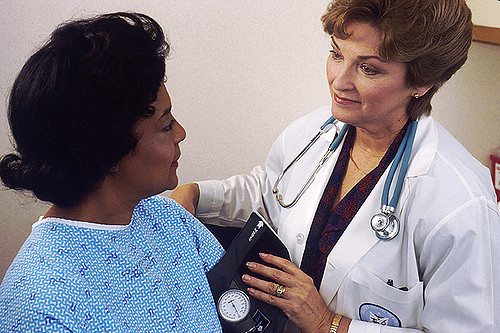LifeQuest
Intensive Out-Patient Treatment for Addiction
Who is Eligible for an IOP?
Eligibility is based on an initial clinical assessment. IOP’s are recommended for:
-
Individuals who do not require medically supervised detoxification.
-
Individuals who have recently completed detox and are in the early/various stages of recovery.
-
Individuals struggling to get clean or remain clean.
-
Those preferring outpatient treatment as opposed to inpatient treatment, while continuing daily activities such as work or school.
-
Individuals who are serious about treatment and recovery.
Support for Dealing With Addiction
It is essential that those whose lives have been impacted by someone who has an addiction to understand their role in the process of recovery. The best thing friends and family members can do is become educated about addiction. This is done in the setting of LifeQuest’s Intensive Outpatient Treatment program designed for family members and others who care.
Being willing to be involved through support groups and therapies can enhance the treatment process, and help increase the likelihood for long term recovery. Some of the topic covered are:
Recognizing signs of drug and alcohol use
Understanding addiction and the addicted
How you enable addiction
How to encourage formal treatment or help
Get help and support for yourself
Frequently Asked Questions
Q. What is drug addiction?
A. Addiction is defined as a chronic, relapsing brain disease that is characterized by compulsive drug seeking and use, despite harmful consequences. It is considered a brain disease because drugs change the brain—they change its structure and how it works. These brain changes can be long-lasting, and can lead to the harmful behaviors seen in people who abuse drugs.
Addiction is a lot like other diseases, such as heart disease, in that both disrupt the normal, healthy functioning of the underlying organ, have serious harmful consequences, and are preventable and treatable, but if left untreated, can last a lifetime.
The path to drug addiction begins with the voluntary act of taking drugs. But over time, a person’s ability to choose not to do so becomes compromised. Seeking and taking the drug becomes compulsive. This is mostly due to the effects of long-term drug exposure on brain function. Addiction affects parts of the brain involved in reward and motivation, learning and memory, and control over behavior.
Addiction is a disease that affects both the brain and behavior.
Q. Can drug addiction be treated?
A. Yes, but it’s not simple. Because addiction is a chronic disease, people can’t simply stop using drugs for a few days and be cured. Most patients need long-term or repeated care to stop using completely and recover their lives.
Addiction treatment must help the person do the following:
- stop using drugs
- stay drug-free
- be productive in the family, at work, and in society
Q. What are the principles of effective treatment?
A. Based on scientific research since the mid-1970s, the following key principles should form the basis of any effective treatment program:
- Addiction is a complex but treatable disease that affects brain function and behavior.
- No single treatment is right for everyone.
- People need to have quick access to treatment.
- Effective treatment addresses all of the patient’s needs, not just his or her drug use.
- Staying in treatment long enough is critical.
- Counseling and other behavioral therapies are the most commonly used forms of treatment.
- Medications are often an important part of treatment, especially when combined with behavioral therapies.
- Treatment plans must be reviewed often and modified to fit the patient’s changing needs.
- Treatment should address other possible mental disorders.
- Medically assisted detoxification is only the first stage of treatment.
- Treatment doesn’t need to be voluntary to be effective.
- Drug use during treatment must be monitored continuously.
- Treatment programs should test patients for HIV/AIDS, hepatitis B and C, tuberculosis, and other infectious diseases as well as teach them about steps they can take to reduce their risk of these illnesses.
Q. How are medications used in drug addiction treatment?
A. Medications can be used to manage withdrawal symptoms, prevent relapse, and treat co-occurring conditions.
Withdrawal. Medications help suppress withdrawal symptoms during detoxification. Detoxification is not in itself “treatment,” but only the first step in the process. Patients who do not receive any further treatment after detoxification usually resume their drug use. One study of treatment facilities found that medications were used in almost 80 percent of detoxifications (SAMHSA, 2014).
Relapse prevention. Patients can use medications to help re-establish normal brain function and decrease cravings. Medications are available for treatment of opioid (heroin, prescription pain relievers), tobacco (nicotine), and alcohol addiction. Scientists are developing other medications to treat stimulant (cocaine, methamphetamine) and cannabis (marijuana) addiction. People who use more than one drug, which is very common, need treatment for all of the substances they use.
Q. What Kind of treatment services are offered through IOP’s?
A. We offer intensive outpatient treatment services which include a wide variety of programs for patients. Most of the programs involve individual or group drug counseling, or both. These programs typically offer forms of behavioral therapy such as:
- cognitive-behavioral therapy, which helps patients recognize, avoid, and cope with the situations in which they are most likely to use drugs
- multidimensional family therapy—developed for adolescents with drug abuse problems as well as their families—which addresses a range of influences on their drug abuse patterns and is designed to improve overall family functioning
- motivational interviewing, which makes the most of people’s readiness to change their behavior and enter treatment
- motivational incentives (contingency management), which uses positive reinforcement to encourage abstinence from drugs
Treatment is sometimes intensive at first, where patients attend multiple outpatient sessions each week. After completing intensive treatment, patients transition to regular outpatient treatment, which meets less often and for fewer hours per week to help sustain their recovery.
Home | About Us | Services | Get Help ~Find Hope | Contact Us | FAQ | The Addicted Brain
LifeQuest is a certified agency for Intensive outpatient treatment for addiction and for Mental Health by the Missouri Department of Behavioral Health.
LifeQuest is approved by the NBCC to provide continued education unit to other professionals. Provider #6764



